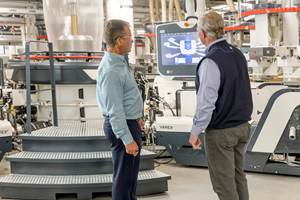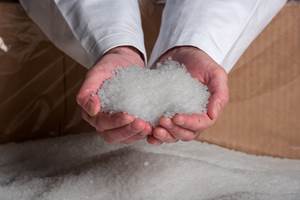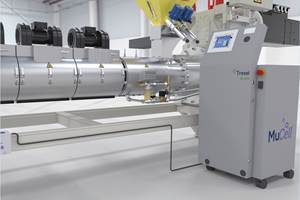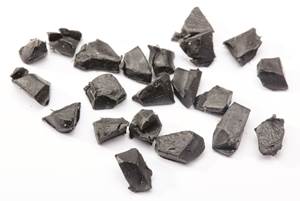BASF Develops Pilot Products Made From Chemically Recycled Plastics
As a next step, BASF plans to make the first products from the ChemCycling project commercially available.
Chemical recycling continues to gain steam as BASF announced it has broke new ground in plastic waste recycling with its ChemCycling project. Chemical recycling provides a new way to reutilize plastic waste that is currently not recycled, such as mixed or uncleaned plastics. Depending on the region, such waste is usually sent to landfill or burned for energy recovery. But chemical recycling offers another alternative: Using thermochemical processes, these plastics can be utilized to produce syngas or oils. The resulting recycled raw materials can be used as inputs in BASF’s production, partially replacing fossil resources.
BASF says it has for the first time manufactured products based on chemically recycled plastic waste. The company is collaborating closely with its customers and partners, which range from waste management companies to technology providers and packaging producers, to build a circular value chain.
BASF is already developing pilot products, including mozzarella packaging, refrigerator components and insulation panels, with 10 customers from various industries. The ChemCycling products supplied by BASF reportedly have exactly the same properties as products made from fossil resources.
Stefan Gräter, head of the ChemCycling project at BASF, sees great potential: “This new way of recycling offers opportunities for innovative business models for us and our customers, who already place great value on products and packaging made from recycled materials but who cannot or do not want to make any compromises when it comes to quality.” As a next step, BASF plans to make the first products from the ChemCycling project commercially available.
The Process
BASF gets this feedstock for the pilot products from the partner Recenso GmbH, Germany. As an alternative, syngas made from plastic waste can also be used. The first batch of this oil was fed into the steam cracker at BASF’s site in Ludwigshafen in October. The steam cracker is the starting point for Verbund production. It breaks down or “cracks” this raw material at temperatures of around 850 degrees Celsius. The primary outputs of the process are ethylene and propylene. These basic chemicals are used in the Verbund to make numerous chemical products. Under the mass balance approach, the share of recycled raw material can be mathematically allocated to the final certified product. Each customer can select the allocated percentage of recycled material.
“We need a wide range of recovery options for plastic waste, since not every solution is suitable for each type of waste or possible for each product application. The first choice should always be the solution that performs best in a life cycle assessment,” says Andreas Kicherer, sustainability expert at BASF.
Potential Commercial Use
However, technological and regulatory conditions must be met before the project is market-ready. For one thing, the existing technologies to transform plastic waste into recycled raw materials such as pyrolysis oil or syngas must be further developed and adapted so that consistently high quality is assured. In addition, regional regulatory frameworks will considerably influence to what extent this approach can be established in each market. For example, it is essential that chemical recycling and the mass balance approach are recognized as contributing to the fulfillment of product and application-specific recycling targets.
Related Content
Pregis Performance Flexibles: In the ‘Wow’ Business
Pregis went big and bold with investment in a brand-new, state-of-the-art plant and spent big on expanding an existing facility. High-tech lines, well-known leadership and a commitment to sustainability are bringing the “wow” factor to blown film.
Read More‘Monomaterial’ Trend in Packaging and Beyond Will Only Thrive
In terms of sustainability measures, monomaterial structures are already making good headway and will evolve even further.
Read MoreFoam-Core Multilayer Blow Molding: How It’s Done
Learn here how to take advantage of new lightweighting and recycle utilization opportunities in consumer packaging, thanks to a collaboration of leaders in microcellular foaming and multilayer head design.
Read MoreAvoid Four Common Traps In Granulation
Today, more than ever, granulation is an important step in the total production process. Our expert explains a few of the many common traps to avoid when thinking about granulators
Read MoreRead Next
People 4.0 – How to Get Buy-In from Your Staff for Industry 4.0 Systems
Implementing a production monitoring system as the foundation of a ‘smart factory’ is about integrating people with new technology as much as it is about integrating machines and computers. Here are tips from a company that has gone through the process.
Read MoreMaking the Circular Economy a Reality
Driven by brand owner demands and new worldwide legislation, the entire supply chain is working toward the shift to circularity, with some evidence the circular economy has already begun.
Read MoreFor PLASTICS' CEO Seaholm, NPE to Shine Light on Sustainability Successes
With advocacy, communication and sustainability as three main pillars, Seaholm leads a trade association to NPE that ‘is more active today than we have ever been.’
Read More





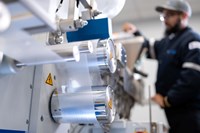
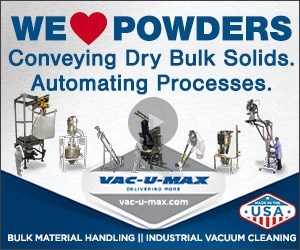








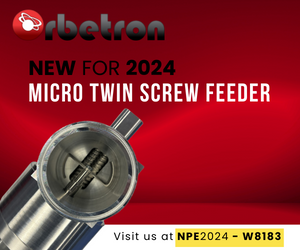

 (2).jpg;maxWidth=300;quality=90)
